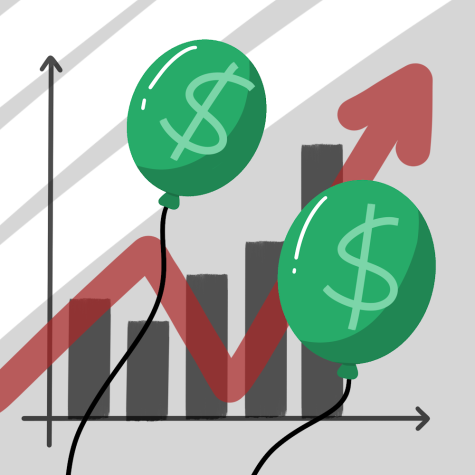Faculty, staff base pay increases by 3 percent
January 26, 2022

The base pay of most college employees was raised by 3 percent, effective Jan. 1, according to Provost Dukes Love. This salary increase is in response to nationwide inflation, Love told the Record in an interview.
In a Dec. 14 email to the faculty, Love wrote that national levels of inflation had outpaced the College’s expectations. When pay increases were originally determined last summer, the College was “operating under the assumption that average annual inflation would be around 2.5 percent, as measured by the rise in the consumer price index (CPI),” Love wrote. “Since then, average prices have grown at a substantially higher annual pace, which we are all feeling at the grocery store, the gas station, and in our everyday purchases.”
The base salary increase also carries over to non-wage compensation, according to Love. “As with any other increase in base pay, you will also see a commensurate increase in any benefits that are linked to your pay, such as the College’s contribution to your retirement savings accounts,” he wrote in the email.
This raise was applied to all “ongoing employees” of the College, Love told the Record, though he noted that this designation does not capture everyone on the College’s payroll. “[The raise] wouldn’t pick up, for example, contract workers at the college or temporary employees,” Love said.
According to Love, the College tries to “beat inflation” when setting staff and faculty pay, meaning that it seeks to raise compensation at a rate that exceeds the rate of inflation. “It doesn’t mean we’ll beat it every single year,” he added. “[We miss] when we’re surprised by inflation, as was the case last year. We actually thought we were ahead of inflation when we set pay in the spring.”
In December, inflation was up 7 percent year-over-year, pushing the prices of everyday essentials — including food and energy — to new heights.
Love said that the College considered the potentially transitory nature of current inflation before setting the increase. “On the one hand … we knew [there] would be higher prices facing our faculty and staff,” he said. “On the other hand, we didn’t want to get ahead of inflation, and over respond to the monthly news.”
The mid-fiscal-year pay increase will be funded through salary savings left by vacant positions and drawings on longterm investments, according to Mike Wagner, the College’s treasurer and vice president for finance and operations.
Faculty members were happy to hear the news, especially given past instances in which the College was reluctant to raise salaries during times of economic uncertainty. “The faculty [has] made sacrifices with salary freezes in the 2008 financial crisis and again at the start of the pandemic,” Chair of the History Department Professor Roger Kittleson wrote in an email to the Record. “This made the raise particularly welcome, since it showed that the administration was aware that the hardships of the pandemic itself and the uptick in inflation were really hurting faculty.”
In addition to the raise given to faculty and staff, the College also raised student pay rates from $13.50 to $14.25 per hour on Jan. 1. This increase is in accordance with Massachusetts’ annual minimum wage increase plan, set to end next year when the minimum wage will reach $15 per hour.







